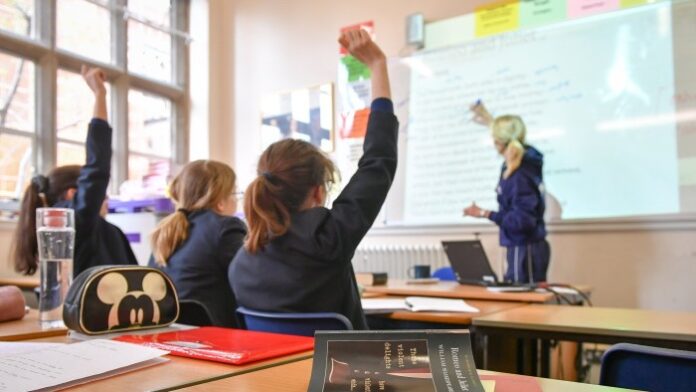Unlock the Editor’s Digest for free
Roula Khalaf, Editor of the FT, selects her favourite stories in this weekly newsletter.
This article is the latest part of the FT’s Financial Literacy and Inclusion Campaign
“Why don’t they teach us about money in schools?” is the frequent refrain of adults who approach me for advice about their financial problems. The good news is that in future, all schools in England will have to, starting from the age of five.
Making financial education compulsory was the number one ask of both parents and children who contributed to a wide-ranging overhaul of the curriculum announced this week — a rare point of generational unity.
The ongoing cost of living crisis has increased the currency of skills like budgeting and avoiding problem debt. But as the financial world becomes more digital and frictionless, parents feel ill-equipped to protect young people from the potential dangers. Almost half of 8- to 17-year-olds say they have been scammed online. With finfluencers peddling crypto on social media and ChatGPT becoming a tool for financial advice, giving young adults the skills to navigate and interrogate this brave, new, unregulated world is urgently needed.
Financial literacy charity
Building a strong foundation of financial knowledge in schools will also have significant benefits for the UK economy as more numerate and money-confident children grow up to become the consumers, workers and entrepreneurs of tomorrow.
Studies have shown that half of the UK’s working-age population has numeracy skills on a par with primary school children. Is it any wonder that more than half of small business owners say they struggle with cash flow management and nearly a quarter have been caught out by not setting aside enough money to pay tax bills?
For a chancellor who aspires to create a nation of investors, ensuring students grasp the basics of compound interest and inflation is a no-brainer.
But deciding that we must teach children about money is the easy part. The challenge will now be implementation. Personal finance has technically been part of the secondary curriculum in England since 2014, but provision remains patchy as its inclusion was not matched by significant extra funding or training resources. And teachers, like most UK adults, lack financial skills and confidence. If we believe financial literacy is worth investing in, we must start by investing in them.
Happily, the desire to provide financial education is not new. Many brilliant charities are already working in this area, some funded by UK banks. They are not only delivering direct tuition and workshops in schools but providing teacher training, and they have developed an impressive array of resources.
The FT’s own Financial Literacy and Inclusion Campaign has devised a personal finance curriculum, which is already being used in over 800 UK schools. Martin Lewis, the founder of MoneySavingExpert, has privately funded a free school text book.
“There is no need to reinvent a wheel that’s been well polished for a couple of decades,” says Sarah Porretta, chief executive of Young Enterprise, a charity working in schools to boost financial literacy. Its teacher training programmes are all currently oversubscribed.
Leon Ward, chief executive of the Money Ready charity, has seen great improvements in financial ability for children on its programmes, and increased confidence in maths lessons too.
The Department for Education should learn from these successes, scale them up and roll them out at greater speed.
Delivering workshops in secondary schools has shown me how even the most disengaged teenage students suddenly become interested when money lessons pertain to real-life experiences.
Becky Francis, who chaired the review, admits to being cynical about the benefits until she took part in a budgeting exercise with a class of 15-year-olds. Imagining they had Saturday jobs as baristas, the teens had to work out what their earnings and outgoings might be. She was struck by “how energised they were, and how useful they found it”.
Other teachers have used real-life examples they know will resonate with their students, including buying hair extensions on credit. Giving teachers the support and skills to get creative with money lessons is the magic ingredient needed to ensure quality financial education is delivered in every school, for every child.
As a nation, we also need to test ourselves. It is incongruous that the UK has shunned the OECD Pisa financial literacy scoring system, which measures the financial knowledge of 15-year-olds across the world. Now is the time to sign up and create a benchmark against which future progress can be measured.
The price of financial ignorance is great. Setting children up for financial success is an economic gift that will keep on giving.
Claer Barrett is the FT’s consumer editor and a trustee of the FT’s Financial Literacy and Inclusion Campaign; claer.barrett@ft.com; Instagram @ClaerB


